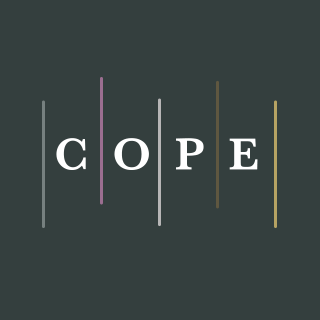These ethical guidelines have been adapted from ethical principles outlined by the Committee on Publication Ethics (COPE). They serve as a framework for ensuring ethical conduct in research, writing, and peer review processes within the Kasetsart Journal of Social Sciences.
Ethical Guidelines for Editors
These guidelines outline the ethical responsibilities and practices expected of editors in academic journals. The guidelines cover various aspects, such as editorial decisions, fairness, confidentiality, conflicts of interest, quality assurance, transparency, feedback mechanisms, and editorial independence. The ethical guidelines cover eight topics:
1. Editorial Decisions: Editors should base their decisions on the manuscript's importance, originality, clarity, and relevance to the journal's scope, regardless of the authors' identity.
2. Fairness and Impartiality: Editors should evaluate each manuscript based on its academic merit without discrimination based on race, gender, sexual orientation, or religious belief.
3. Confidentiality: Editors and editorial staff should maintain the confidentiality of submitted manuscripts and not disclose information about them, except as required for the review process.
4. Disclosure and Conflicts of Interest: Editors should declare any conflicts of interest and refrain from handling manuscripts that may involve a conflict. They should also act if a conflict of interest arises during the review process.
5. Quality Assurance: Editors are responsible for ensuring the quality of published material, maintaining the integrity of the academic record, and promptly addressing issues of plagiarism, fraudulent data, or unethical research practices.
6. Transparency and Integrity: Editors should promote transparency in the review and publication process, ensuring that appropriate corrections, retractions, and apologies are issued when necessary.
7. Feedback and Complaints: Editors should provide mechanisms for authors to appeal editorial decisions and address complaints ethically and transparently.
8. Editorial Independence: Editors should make decisions free from commercial interests and influence, maintaining the journal's editorial independence.
Ethical Guidelines for Reviewers
These guidelines serve as a framework to ensure fairness, integrity, and professionalism in the peer review process. Implementing these principles can help maintain the credibility and quality of the journal's review process. The ethical guidelines for reviewers cover nine topics:
1. Confidentiality: Reviewers must respect the confidentiality of the peer review process, keeping manuscripts and their content confidential. They should not share, discuss, or use any information from the manuscript without permission.
2. Constructive Feedback: Reviewers should provide objective, constructive, and honest feedback to authors, aiming to improve the quality of the manuscript. Criticism should be courteous and expressed clearly.
3. Competence: Reviewers should only accept manuscripts for review in their areas of expertise. If they feel unqualified to review, they should inform the editor promptly.
4. Objectivity and Impartiality: Reviews must be conducted objectively, without personal bias or conflicts of interest. Reviewers should declare any potential conflicts to the editor.
5. Timeliness: Reviewers should complete their reviews within the agreed-upon or reasonable timeframe. If unable to meet the deadline, they should inform the editor promptly.
6. Acknowledgment of Sources: Reviewers should alert the editor if they suspect plagiarism, fraudulent data, or ethical concerns and should point out relevant published work that has not been cited.
7. Recognition of Author's Rights: Reviewers should respect the intellectual independence of the authors. Any personal criticism should be expressed with civility.
8. Openness to Dialogue: Reviewers should be open to further discussion with the author if needed and willing to provide clarification or further information on their review.
9. Adherence to Journal Guidelines: Reviewers should follow the journal's specific guidelines for reviewing, as provided by the editor.
Ethical Guidelines for Authors
These guidelines help promote integrity, transparency, and responsible behavior among authors in academic publishing. They serve as a reference for authors to maintain high ethical standards throughout the research and publication process. The ethical guidelines for authors cover seven topics:
1. Originality and Plagiarism: Authors should ensure that their work is original and properly acknowledge the work of others through citations in the Acknowledgements section. Plagiarism in any form is unacceptable.
2. Multiple Submissions: Authors should not submit the same manuscript to more than one journal simultaneously. Simultaneous submissions can lead to issues of duplicate publication, which is unethical.
3. Authorship and Acknowledgments: All individuals who have made a substantial contribution to the research should be listed as authors. Others who have contributed in a smaller capacity should be acknowledged appropriately.
4. Data Integrity: Authors are responsible for the accuracy and integrity of the research presented. Fabrication, falsification, or selective reporting of data is unethical.
5. Conflicts of Interest: Authors should disclose any financial or personal relationships that might influence the research or its interpretation.
6. Ethical Review and Consent: Authors should ensure that their research involving humans or animals has been conducted ethically, following appropriate guidelines and obtaining necessary approvals. Informed consent must be obtained from participants. KJSS requests the submission of copies of informed consent from human subjects in clinical studies or IRB approval documents.
7. Disclosure of Funding Sources: Authors should disclose the sources of financial support for their research and any potential conflicts of interest related to funding.
Source:
Committee on Publication Ethics. (n.d.). Code of conduct and best practice guidelines for journal editors. Retrieved, 2023, November 24, form https://publicationethics.org/resources/code-conduct
Committee on Publication Ethics. (n.d.). Ethical guidelines for peer reviewers [PDF]. Retrieved, 2023, November 24, form https://publicationethics.org/sites/default/files/ethical-guidelines-peer-reviewers-cope.pdf
Committee on Publication Ethics. (n.d.). Core practices. Retrieved, 2023, November 24, form https://publicationethics.org/core-practices
